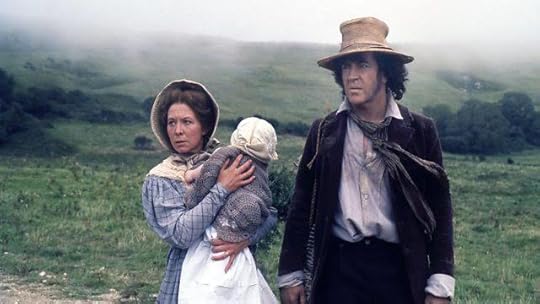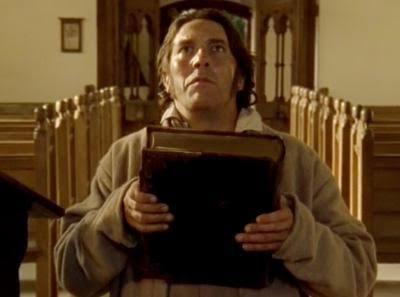What do you think?
Rate this book


393 pages, Paperback
First published January 1, 1886
 come to my blog!
come to my blog!“Happiness was but the occasional episode in a general drama of pain.”






His mind began vibrating between the wish to reveal himself to her & the policy of leaving well enough alone, till he could no longer sit still. He walked up & down & then he came & stood behind Elizabeth-Jane, looking down on the top of her head. He could no longer restrain his impulse. 'What did your mother tell you about me--my history?' he asked.But wait, I've forgotten to mention the arrival of an industrious young Scot, Donald Farfrae, an intelligent, even-tempered lad who is seemingly en route to a new life in America but who reminds Henchard of his late brother & who is convinced to sign on as a foreman at Henchard's grain business, helping to enhance its profitability, while becoming a confidant but later a rival. In a reversal of roles, Henchard becomes a pauper & Farfrae wealthy & the town's mayor.
He took off his coat & hat and stood on the brink of a stream with his hands clasped in front of him. While his eyes were bent on the water beneath, there slowly became visible something floating in the circular pool formed by the wash of centuries; the pool he was intending to be his deathbed.What also lifts Thomas Hardy's early novel well above the pitfalls of the apparent storm & stress of the relationships I've highlighted are some most uplifting descriptive details about sunsets, sunrises, daily life in a small English village almost 200 years ago, including some mention of the grog that was Henchard's undoing, "furmity" (fermenty), a mix of milk, boiled & fermented corn, spices, sugar & for an extra tuppence, a bit of rum, most certainly not on the drink menu of any place I've ever visited in the U.K.
At first it was indistinct by reason of the shadow from the bank but it emerged thence & took shape, which was that of a human body, lying stiff & stark upon the surface of the stream. Then he perceived with a sense of horror that it was himself. Not a man somewhat resembling himself but one in all respects his counterpart, his actual double.
The sense of the supernatural was strong in this unhappy man & he turned away as one might have done in the actual presence of an appalling miracle. He covered his eyes & bowed his head. Without looking again into the stream, he took his coat & hat and went slowly away.
